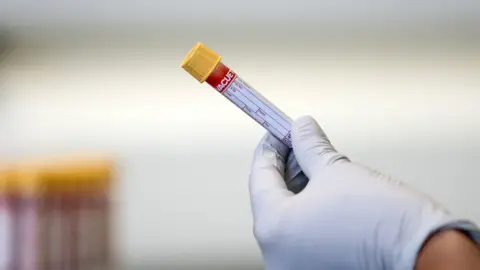Jersey PFAS scientific panel members appointed
 Simon Dawson
Simon DawsonJersey's government has announced the members of a PFAS scientific advisory panel.
They will advise on toxic chemicals after a testing programme found a number of islanders who live near the airport had higher levels of PFAS in their blood than normal.
The most likely source of the contamination is firefighting foam that leaked into waterways in the 1990s.
The panel is being led by Dr Steve Hajioff.
He will be joined by epidemiologist Dr Tony Fletcher and Prof Ian Cousins - a professor in Environmental Organic Chemistry at the Department of Environmental Science at Stockholm University.
The chemicals are found in hundreds of everyday items, but they have been linked to health problems including testicular and kidney cancer, plus other diseases, including ulcerative colitis.
'Real priority'
The panel will help make recommendations, including on reducing PFAS levels through therapeutic phlebotomy.
"It would be like going to your doctor and giving a blood sample or maybe donating blood but the difference is we wouldn't be passing that blood on to other people," said Prof Peter Bradley, Jersey's director of public health.
"The affected residents have told us this is a real priority for them."
He said: "Residents are not only concerned about their own health but also of their children and grandchildren and it makes sense to do the right things now for Jersey.
"There is increasing national concern. We need to make sense of it and what's right for our population."
The panel will assess the outcomes of treatments trialled around the world.
Prof Mark Taylor was the academic lead on a clinical trial that found removing blood reduced the levels of the chemical in Australian firefighters.
"The health effects of PFAS are still at the point of association - not causation - however, if you can reduce your exposure and reduce the amount of exposure in your body, you reduce the risk and the chances of you possibly developing these adverse health outcomes," he said.
"My working hypothesis is that it will corroborate what we found. That will then encourage others to apply this as a treatment for PFOS contaminated communication."

Follow BBC Jersey on Twitter and Facebook. Send your story ideas to [email protected].
